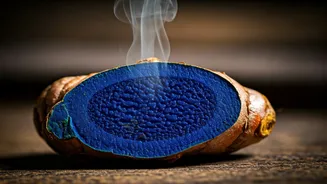Unmasking Acne Misconceptions
Many people struggle with acne and often believe certain things about it. A dermatologist has taken a stand to debunk some of the most common myths related
to acne. One widely believed idea is that what you eat directly causes breakouts. However, the dermatologist explains that this is not always true. Another myth suggests that poor hygiene is the leading cause of acne, which the expert also challenges. They present a more realistic understanding that acne is often a result of complex interactions within the skin and body. The core message of the expert's message is to shift focus toward more accurate reasons for acne and its triggers. This involves looking at the effects of hormones, genetics, and the skincare routines.
Diet's Role Unveiled
The relationship between diet and acne is more complex than many believe. The dermatologist clarifies that while certain foods might influence acne in some individuals, they are not the only or primary cause. High-glycemic foods and dairy products could potentially worsen acne for some people. The expert emphasizes that the impact of diet varies from person to person. They emphasize that the individual's overall dietary patterns, rather than isolated foods, may have a greater effect. They suggest that maintaining a balanced diet, which is rich in essential nutrients and low in processed foods, may promote overall skin health. They also suggest that people consult with a healthcare professional to examine their diet's effects and personalize their approach to acne treatment.
Hygiene and Acne Facts
Contrary to popular belief, acne is not merely a result of poor hygiene. The dermatologist stresses that while cleanliness plays a role in skin health, it is not the primary trigger of breakouts. They mention that over-washing the face can strip away natural oils. They mention that over-washing can potentially irritate the skin and worsen acne. Acne is usually triggered by a combination of genetics, hormones, and bacteria. Acne develops when hair follicles become clogged with oil and dead skin cells. Therefore, proper cleansing is important to maintain healthy skin. They recommend gentle skincare routines, which will help to maintain the natural balance of the skin. Therefore, the dermatologist says that a holistic approach is key to handling acne. This involves understanding skin dynamics.
Understanding Hormonal Factors
Hormones are a significant factor in the development of acne, and this is a key point the dermatologist emphasizes. Hormonal fluctuations can stimulate oil production and cause breakouts. They reveal that in teenagers, hormonal changes during puberty commonly lead to acne. Also, adults, particularly women, may experience acne as a result of hormonal imbalances. These imbalances can be related to the menstrual cycle, pregnancy, or other hormonal conditions. Acne can affect the severity of the skin condition. The dermatologist emphasizes that identifying the hormonal cause is very important for efficient treatment. Options like hormonal therapies or targeted skincare products may be considered. The dermatologist suggests that people should consult healthcare professionals for the right approach.
Effective Treatment Strategies
The dermatologist also provides helpful insights into efficient acne management. They emphasize that choosing the right treatment depends on the individual's condition. They also note that there are many over-the-counter options available, such as benzoyl peroxide and salicylic acid, which can reduce inflammation and unclog pores. The dermatologist points out that prescription treatments like retinoids and antibiotics might be necessary for more severe cases. They stress that consistency is essential in any treatment. In addition, the dermatologist recommends incorporating a suitable skincare routine, which focuses on cleansing, moisturizing, and sun protection. They emphasize that patients should seek advice from a dermatologist to get personalized treatment plans. With a better understanding of the various factors contributing to acne, effective skin care is possible.












